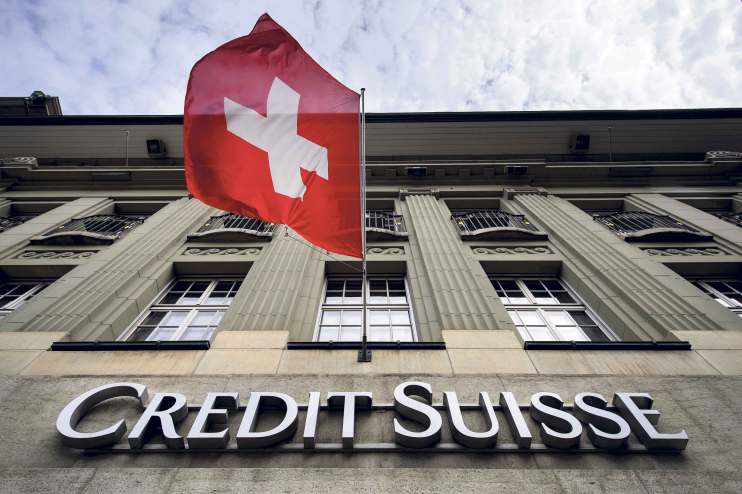Freefall: Credit Suisse potentially ‘next shoe to fall’ as bank contagion fears spread across Europe

Shares in Credit Suisse tanked today after one of its main shareholders ruled out providing new funding to the embattled lender prompting a major sell-off in the wider European banking sector.
Credit Suisse shares traded as much as 30 per cent down earlier on Wednesday, and are now trading around 23 per cent lower.
Banking stocks slumped across Europe too. BNP Paribas fell 9.6 per cent, Deutsche Bank 8.6 per cent, Santander 6.0 per cent, and UBS 8.2 per cent. The Stoxx 600 banking index was down 6.2 per cent.
The sell-off was prompted by the refusal of the Saudi National Bank to invest further in Credit Suisse.
Asked by Bloomberg TV whether the SNB was open to further capital injections, chair Ammar Al Khudairy said “the answer is absolutely not, for many reasons outside the simplest reason, which is regulatory and statutory.”
SNB took a 9.9 per cent stake worth £3.46bn in Credit Suisse last October when the bank announced restructuring plans. The bank is aiming to turn itself into a “new Credit Suisse”, centred around wealth management and its domestic bank.
Speaking separately to Reuters, Al Khudairy said “we are happy with the plan, the transformation plan that they have put forward. It is a very strong bank.”
“I don’t think they will need extra money; if you look at their ratios, they’re fine. And they operate under a strong regulatory regime in Switzerland and in other countries,” Al Khudairy continued.
However, the cost of insuring the company’s bonds against default shot up today with investors increasingly concerned the bank might be on the verge of collapse.
So far, banking regulators have not intervened in the crisis but a report from the Financial Times suggests the bank has appealed to the Swiss National Bank and Finma, the Swiss regulator, for a public show of report.
A Reuters report also said the European Central Bank contacted banks on its watch to scrutinise their exposure to Credit Suisse, although one of sources cautioned that they saw the bank’s Suisse’s problems as specific rather than systemic.
Fiona Cincotta at City Index said “authorities could be forced to act quickly as the failure of this bank could have implications for other European banks which have exposure to the lender. “
Speaking to News Asia, Credit Suisse CEO Ulrich Koerner tried to reassure the market. Credit Suisse operates “under the highest possible standards when it comes to capital, to funding, to liquidity,” he said.
“We are a strong bank, we’re a global bank under Swiss regulation…our capital and liquidity base is very strong,” Koerner continued.
The news comes just a day after Credit Suisse reported it found “material weaknesses” in its financial reporting controls.
Credit Suisse said its “internal control over financial reporting was not effective” for both 2021 and 2022. It also confirmed that outflows “had not yet reversed” by year-end.
“SNB has cited regulatory issues but given that the bank has revealed its found material weaknesses, it’s little surprise its steering clear of taking on any more risk in this current climate,” Hargreaves Lansdown’s Susannah Streeter commented.
Problems at Credit Suisse sparked a wider sell-off amongst banking stocks as the sector remains skittish following the collapse of Silicon Valley Bank.
Chief market analyst at Finalto Neil Wilson said it looks like “there are increasingly worried investors and counterparties looking at Credit Suisse as potentially being the next shoe to drop.”
Analysts agreed problems at Credit Suisse would pose a much greater risk to the financial sector than the recent collapse of Silicon Valley Bank.
“If Credit Suisse were to run into serious existential trouble, we are in a whole other world of pain,” Wilson said. “It really is too big to fail.”
In the UK, HSBC was down 5.2 per cent, Lloyds 4.5 per cent, NatWest 6.0 per cent, and Barclays 9.2 per cent.
“The fresh banking sell off has taken hold as fears rise to the surface about the robustness of sector with the shadow of the SVB collapse still looming large,” Streeter commented.
The pressure on the financial sector will increase speculation that central banks will have to ease off interest rate hikes to prevent causing more instability.